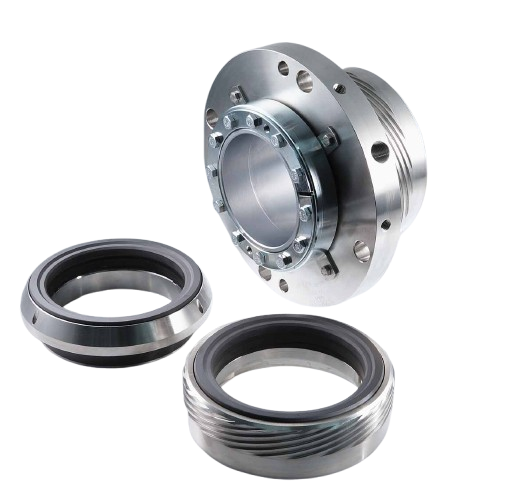In machines that operate in wet, high-speed, or pressurized environments, keeping things sealed properly is critical. That’s where a mechanical seal bearing comes into play. These specially designed components protect against leakage and contamination, ensuring reliable operation in pumps, motors, and other rotating equipment.
Understanding how they work — and why they’re essential — can help you choose the right one for your industrial or commercial setup.
What Is a Mechanical Seal Bearing?
Mechanical seal bearings combine two critical functions: reducing friction and sealing moving parts. Unlike regular bearings, these have built-in sealing systems that prevent fluid or gas from escaping and block external contaminants like dust or dirt from entering.
They are commonly used in:
- Water pumps and submersible pumps
- Chemical processing machinery
- Food-grade mixers
- Oil and gas equipment
- HVAC systems
These bearings are ideal for applications where traditional seals wear out quickly due to friction or pressure.
Key Benefits of Mechanical Seal Bearings
🛡️ Superior Protection from Leaks
These bearings are built to prevent internal fluids from leaking out of the system — especially important in systems under high pressure.
💧 Resistance to Moisture and Chemicals
Mechanical seal bearings are often made with materials that resist corrosion and chemical attack, such as stainless steel and ceramic coatings.
🛠️ Lower Maintenance and Downtime
Because of their sealed design, these bearings typically require less frequent maintenance. That means fewer shutdowns and lower long-term operating costs.
🔄 Longer Service Life
With fewer contaminants entering and better lubrication retention, mechanical seal bearings generally last longer than open or shielded bearings.
When to Use Mechanical Seal Bearings
Midway through any maintenance plan or equipment upgrade, you might wonder if it’s time to invest in mechanical seal bearing solutions. Here’s when you should seriously consider them:
- If your equipment is exposed to liquids or harsh chemicals
- When you need to maintain high efficiency in critical machinery
- To meet hygiene standards in food or pharmaceutical production
- In outdoor or marine environments where water intrusion is common
These bearings are not just about performance — they’re about protecting your investment in equipment and ensuring consistent output.
Tips for Proper Use and Care
Even durable bearings need some basic care to stay in top shape:
- Use the correct installation tools and techniques
- Follow proper lubrication guidelines
- Avoid exposing them to extreme heat or shock
- Regularly inspect for signs of wear, noise, or misalignment
By staying proactive, you’ll extend the life of your bearings and maintain machine efficiency.
Conclusion
Mechanical seal bearings play a vital role in many industries where cleanliness, fluid control, and reliability matter. They’re engineered to handle tough environments and keep machines running smoothly with minimal fuss. Choosing the right type and maintaining them properly can reduce downtime, prevent leaks, and improve system performance.
If your operations demand durability and sealing power in one solution, mechanical seal bearings are the way forward.
